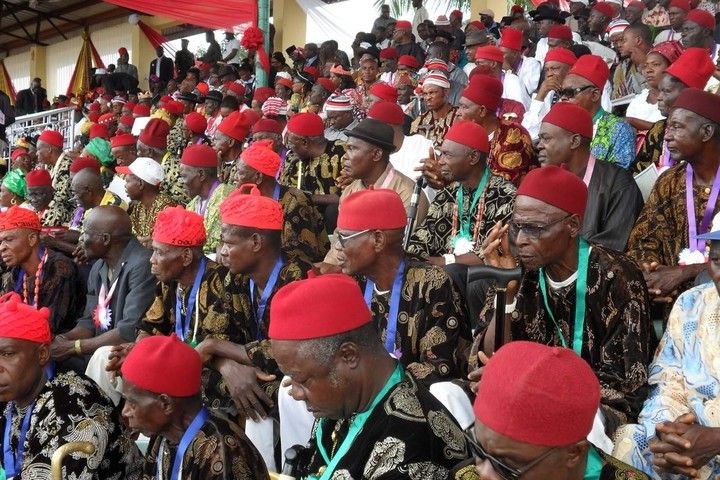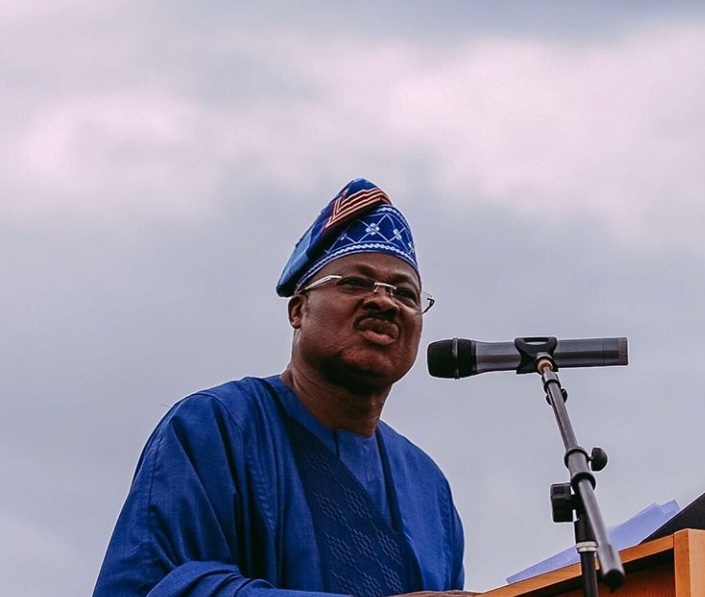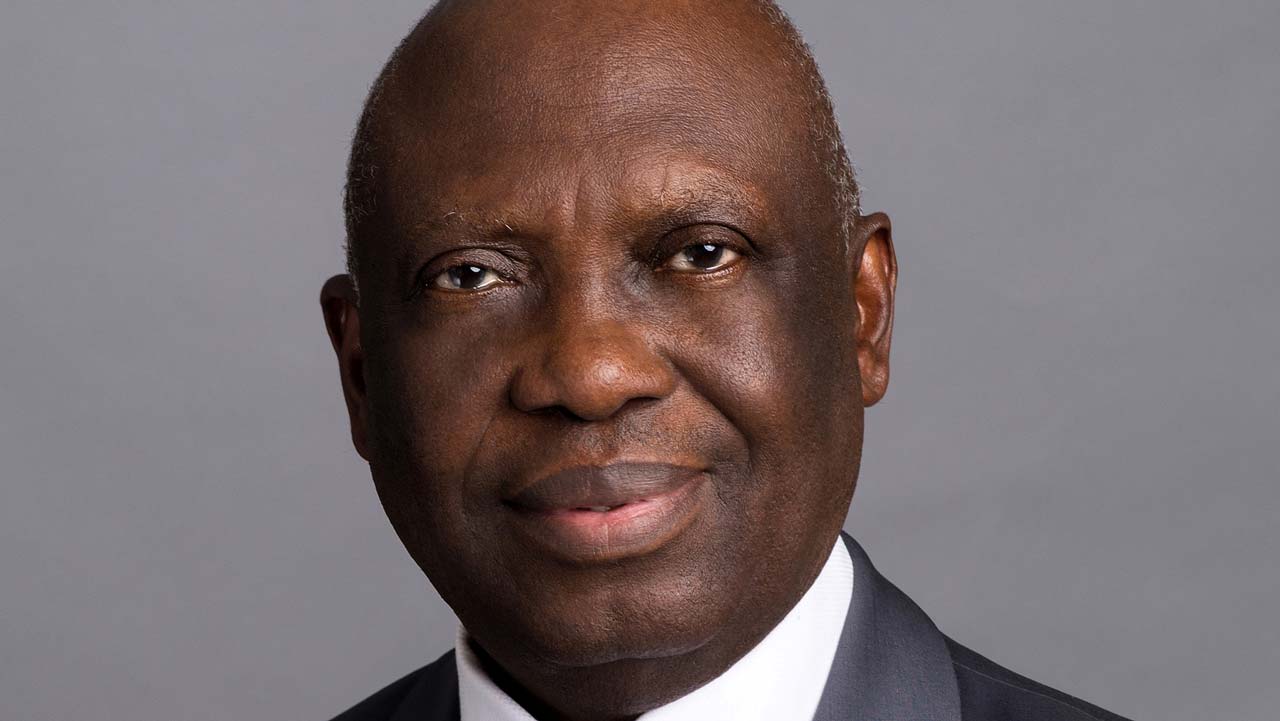Report: Hushpuppi once sold 'okirika' in Lagos
Until their arrest and extradition last week by the United Arab Emirates (UAE) to the United States, Ramon Olorunwa Abbas, also known as Ray Hushpuppi and his accomplice in cyber-heist, Olalekan Jacob Ponle, known as ‘Woodberry,’ played second fiddle only to Emmanuel Nwude, former Director of the defunct Union Bank of Nigeria, known to have swung the third largest jibiti in world banking history. Nwude himself was only bested by Nick Leeson and Quasay Hussein. Leeson, ex-English derivatives trader, was a rogue trader whose most fraudulent and notorious heist led to the bankrupting of the Barings Bank, UK’s oldest merchant bank, in 1995. Between 1995 and 1998, Nwude pulled a fraud that shook the entire globe and eminently placed him in any variant of the Guinness Book of Records, this time, of world fraudsters. He had defrauded Nelson Sakaguchi, a Director at Brazil’s Banco Noroeste, Sao Paulo, of the sum of $242 million. Posturing to be Paul Ogwuma, former Central Bank of Nigeria Governor, Nwude convinced Sakaguchi to invest in a “proposed” Abuja airport scheme, with an assurance of a commission totaling $10 million. As a result of this phenomenal heist, Banco Noroeste could not withstand the pressure of Nwude’s fraud and collapsed in 2001.
Fraud is not strange to traditional African native lexicon. While the Yoruba derisively label it jibiti, Igbo’s label for it is aghugho or mpo and Hausa finds comfort in labeling it zamba. The three ethnic structures had so many mores, folklores and fables they formulated to demonize it as a road that leads to perdition and frantically pulled their children from its ruinous path. In Yoruba jibiti etymology, you scarcely could divorce the people’s deployment of anecdotes to the rescue. Tortoise was the anecdotal image constructed to impersonate jibiti by the people. This animal, to which cunning was a second nature, approximated the fraud, smartness and the negatively deployed intelligence of the Hushpuppis, Woodberry and Nwudes of this world. At the end of those folklores, an eternally apt lesson was always drawn: that the jibiti kingpin would have money, build houses, sire children, live a life that refreshingly entices like a whooshing fiery vapour and literally build an enticing image in the moon but their end is always fatal and lamentable. Just like the life of Hushpuppi, Woodberry, Nwude and their precursors who travelled on this accursed road.
The western world also teaches that a life of crime does not pay. Readers of James Hadley Chase would confirm this. If you read Chase’s Want to stay alive? you will encounter a certain evil Poke Toholo and a trio of young crooks. Toholo the Indian, with biceps of a prize fighter, was on a killing spree; Chuck was the amoral and cruel one and Meg, a hapless character. Toholo loves money like Hushpuppi but on top of it, had a deep hatred for rich people. Fear, he conjured, was what opened the wallets of the rich. However, Tom Lepski, the no-nonsense cop, searched the nooks and crannies for them and in the end, Toholo and Chuck meet their waterloo.
Stories have been told of the humble and even humbling background of the youthful Hushpuppi who, through his transnational network, facilitated computer intrusions into sacred account domains, perpetrating myriad fraudulent schemes, money laundering, his targets being victims in and around the world who let down their cyber guards. With these, he got involved in cyber-heist schemes that raked in hundreds of millions of dollars and did this with a ring of multiple coconspirators. In his very early 30s, he was said to have hawked bread and second-hand clothing on Lagos streets. Psycho analysis would tell you that such experience has Janus-faced manifestations. While it could push the victim to the edge of positive aspirations, it could also lead to the fringe of negative manifestation. There are thousands of those who are atop their trades today who, years back, went through far more incinerating poverty experiences than that of Hushpuppi. They however disaggregated those negative upbringings and, with the help of providence, made positive readings of their lives. Some, like Hushpuppi, can’t seem to forgive the system that impoverished their background and take it out on it by inflicting scars on the system.
Advertisement
Locating why Hushpuppi took this route may be difficult to decipher. Was it in the bid to shame poverty, get the recognition he didn’t have growing up or to get back at a system that impoverished his growing up? In cyber-enabled fraud and business email compromise, he therefrom made benumbing amount of money. This he deployed into a life of luxury, an opulent lifestyle that was unusual and flamboyant. He was said to have done this through fraudulent wire transfers. For the month of February, 2019 alone, he was estimated to have approximated €13 million (USD $14.7 million) in heists which he funneled into diverse bank accounts in the world. With an Instagram following of 1.9 million by October, 2019, Hushpuppi was the toast of A-list celebrities with whom he reportedly had photo-ops, like semi-atheist Daddy Fresh, Dino Melaye and even American singer-songwriter, Erykah Badu.
Depicting the spirit of flamboyance that is known to be the Siamese of sudden wealth, Hushpuppi began to live a sumptuous lifestyle and flaunted it in a Nigerian society where sources of wealth abhor enquiry of the people and are a taboo to be investigated by the police. Hushpuppi could not hush jetting out in private jets, rolling in Rolls Royce and roving in expensive Range Rover cars whose prices ranged from about $330,000. He was notorious on the social media by the frequency of his designer clothes, expensive wrist watches and postures with luxury cars and chartered jets.
This year 2020 would pass as the most unfavourable to Nigeria in the global blast its nationals involved in cyber-heist schemes made while being burst abroad. Earlier in the year, Obinwanne Okeke of the Invictus Group CEO, popularly known as Invictus Obi, was arrested at the Dulles International Airport, on his way out of the United States. Between April 11, to 19, 2018, Okeke was said to have, through hacking into the email account of the Chief Financial Officer of Unatrac Holding Limited, which sells heavy industrial and farm equipment, fraudulently transferring funds from it and stealing an amount totaling $11 million.
Advertisement
The Economic and Financial Crimes Commission (EFCC) and the Independent Corrupt Practices Commission (ICPC) are managing a benumbing number of home-based Hushpuppis and Invictus Obis whose statistics is almost becoming a pandemic. It is grueling explaining to the upcoming youths who are said to be the leaders of tomorrow that a life of crime doesn’t pay. This is because, at a conservative estimate, if you gather ten youths at a spot today, those who do not have the Hushpuppi DNA among them will rarely be up to three or four.
There are also arguments that Hushpuppi, Woodberry, Invictus Obi and members of their clan made fatal mistakes of not contesting for elective offices in Nigeria after their heists. They would have been in the clear by now, shrouded from arrest by Nigeria’s nebulous immunity clause. Drug barons, fraudsters, forgers and murderers populate those otherwise hallowed offices. Only in 2005, former Assistant Inspector-General (AIG) of Police, Senator Nuhu Aliyu, had sent tongues wagging when, upon surveying the parliament, he revealed that right there in the Senate, “there are many of my colleagues here who I had detained for criminal offences. Unfortunately, I found myself with them in the National Assembly.” The belief is that there are worse criminals than the Hushpuppi gang in Nigeria’s parliament and many Government Houses in Nigeria answering to the fake prefixes of “Their Excellencies.” So, how do we get rid of the Hushpuppis in this generation?
First, at last, the acrid seeds planted by Nigerian leaders some decades back have not only germinated but are beginning to bring out fruits at an alarmingly fecund rate. From Nigerian leaders who, in their actions and words, postured that Nigeria was so wealthy that what to do with money was her bother, rather than invest in the future, to ones who deliberately failed to prepare for today, it is time of harvest of such slovenly leaderships. In the other Nigerian leadership which, against the run of play, promoted corruption as an art of governance, celebrating kickbacks, survival-of-the-fittest-and-elimination-of-the-weakest race for government patronage, this is the time to harvest those cruel seeds.
What the leaderships above succeeded in doing was to kill craft, kill hard-work, but promoting mediocrity, reign of back-corner efforts and shunting as national policy. Today, we have arrived at a lamentable intersection where money sits atop our conscience as the Nigerian national ethos. Don’t get me wrong: there is no capitalist society in the world like ours that does not put primacy on wealth. However, no serious one amongst them situates wealth ahead of industry and sweats. In Nigeria today, no matter your mental output or your contributions to the uplift of society, if you do not possess money, you are treated worse than an infidel. This has promoted a rat race for the acquisition of money that is massive and frustrating. Everyone you meet in Nigeria is in a race to be wealthy and in the process, subverting the ethos that we used to know as constituting the rudiments of national wealth. If national wealth of a nation is indeed constituted by her human resources, ours are being tainted daily with an obsession for material acquisitions.
Advertisement
The above conflagration is further stoked by the huge unemployed youths that Nigeria churns out day in day out. Nigeria and her unemployed youths are like the case of the North and its almajiri offspring. While the region gives birth to children it cannot fend for, Nigeria graduates out of her educational institutions graduates it does not have space for. The statistics is so sickening that there doesn’t seem to be any family in Nigeria that doesn’t have a casualty. Check out your neighbourhood and you will behold young men and women, early in the morning, pining away in unproductive waste of their youths. Endeavour to have a one-on-one with them and you will have an idea of how seemingly hopeless the situation is. Hushpuppi, Invictus Obi and the rest who make quick money are their role models.
The few jobs that are available are seen as entitlements of politicians, their cronies and hirelings. Only last week, the news came up that the FG had appointed Chairman of National Union of Road Transport Workers in Lagos State, Musiliu Akinsanya, aka MC Oluomo and Folasade Tinubu-Ojo, the Iyaloja-General of Lagos and APC chieftain, Bola Tinubu’s daughter, as committee members to undertake the recruitment of 20,000 youths in Lagos. At the parliament, Minister of Labour, Festus Keyamo, had a spat with legislators who sought territorial control over the disbursement of 774,000 jobs with N20,000 monthly earnings for longsuffering job applicants. The allocation of N52bn for the creation of the jobs was also said to be a source of scuffle among the minister and the legislators. These would tell you how sorry the situation is.
Good news is, I do not think that the situation is a totally hopeless one. Bad news is that, there exists a hopeless tinge to it. This is that, we may never have a leadership that is as concerned about this gross and derelict mindset of Nigerians as to declare a state of emergency on the current remiss orientation of Nigerians. Of particular bother is that parents abet the Hushpuppi mentality of their children. While some do this by submitting that cyber heists, mostly directed at foreigners, are in line with the MKO Abiola campaign for repatriation of Africa’s stolen wealth by Europeans several decades ago, they forget to reason that in this quest, we are incubating a country of rogues where inhabitants will totally lose their souls.
Nigeria needs to urgently invest and massively too, in the reorientation of minds. Right now, of abiding presence in the minds of Nigerians is a rentier, Naira and Kobo orientation. In families, offices, public places, interface with artisans and all that, you will confront Nigerians who derive all or a substantial portion of their survival or revenues from the rent paid by another person, individuals, concerns, politicians or government persons. They defend such with remarkably surprising energies. We must return the minds of our growing youths to the reset mode of sacrifices, morality and the eternal worth of being there for the next person next door.
Advertisement
Anyone heading government, armed with this fire-on-the-mountain situation, should aim at rebuilding Nigerian homes. This can only be done by massively rewarding righteousness, punishing unkindness to the other person and fortifying the walls that hold families together with dosages of personal morality. Products of such homes cannot be as heartless as Hushpuppi, Woodberry, Invictus Obi and the likes who inflict pains on people for wealth. If we allow this society to go ahead like this, not only are we going to continue to harvest mechanistic beings who possess no atom of humanity, we will soon get to a juncture where we will offer our individual blood and flesh for sale in the open market.
Oba Adesoji Aderemi and the incivility that haunts Nigeria
Advertisement
Yesterday, specifically on July 4, 2020, Oba Sir Titus Martins Adesoji Tadeniawo Aderemi, the 49th Ooni of Ife, the spiritual head of the Yoruba, being the Oba of a town, Ile-Ife, considered to be the ancestral home of the Yoruba, and Western Nigeria‘s Governor General from 1960 to 1962, marked his 40th year in the land of the ancestors. He passed on in 1980 at a ripe age of 90, having been born November 15, 1889.
A lot has been written about how Oba Aderemi brought education to the then little-known town of Ile-Ife through championing education during his reign, how he laid the foundation for the founding of the famous and model secondary school, Oduduwa College, in January, 1932 and how his closeness to the late Chief Obafemi Awolowo ensured the location of the then University of Ife in his domain. His modernization philosophy was also said to have been hinged on the truism that the surest route to facilitating and sustaining a modern society was through education.
Advertisement
What I however feel that remembrancers have not adequately memorialized about Sir Aderemi was his role in soldering together the fissiparous tendencies among Yoruba people before 1940s, as well as his contributions, as Governor of the Western Region from 1960 to 1962, to a great Yorubaland, a period I dub the fiercest and the most acrimonious of western region’s national development.
Working in concert with Awolowo and other leading leaders of Yorubaland, Oba Aderemi deployed his renowned and remarkable wealth to bridging the gaps of exploitation and divisional differences that existed among Yoruba people. He rallied round and fervently too, to forge from these splinters a Yorubaland that could speak with a common voice. The Egbe Omo Odudua was founded in London in 1945, from his union of purpose with Awolowo, Sir Adeyemo Alakija and others. He was the first and perhaps the last monarch in Nigeria who would hold the twin positions of king and governor. He played key roles in the 1962 political crises in the Western Region when he effectively used his gubernatorial power to remove Premier Ladoke Akintola, who he perceived to have an obvious loss of majority support in the Western House of Assembly. The constitutional crisis was later resolved at the Privy Council in London. Though the event escalated the political tension and rivalries in the region, posing a constitutional crisis, that same wielding of gubernatorial power by Sir Aderemi led to the end of litigations ending at the British Privy Council.
Advertisement
Remembrancers will also not forget the spat between the Governor-General and a leading Ife son, Victor Babaremilekun Adetokunbo Fani-Kayode, Q.C., SAN, CON (1921–1995) also known as Fani Power, who was Leader of the Opposition and later, Deputy Premier. An event happened in March, 1961 which underscored the reverence for Sir Aderemi and which got scurrilous attacks for Kayode. It was at the tenth session of the Western House of Assembly. On this day, some of the Region’s considered VIPs were slated to be presented to the Governor-General, Oba Adesoji Aderemi. At the approach of the Governor-General, however, Fani-Kayode excused himself for the rest room and all efforts to get him stay on failed.
This particular action became an issue for debate in the whole of the region. It was the lead story of the Tribune under the title, Fani disappears as Gov approaches (March 23, 1961) and various commentators expressed their disgusts at this rudeness of Fani Kayode, one of the subjects of the monarch. The Action Group Member for Remo North, Mr. J. Olu Awopeju, in the report, had said that the action of the Leader of Opposition was an assault on, not only the Governor-General but the whole House of Assembly. Chief J. A. O. Odebiyi, Leader of the House and Finance Minister, on his own, said the behaviour of Fani Kayode was a challenge to the constitution as the Governor was a representative of the Queen and “everybody is in honour bound to give him his due respect.” Akintola, the Premier himself lampooned this ‘disrespectfulness’ of the Opposition Leader (a man he was to later work with). Akintola said he was “disturbed to observe at this historic session, the unfortunate insult passed on our Governor.”
This “rudeness” later attracted a front page editorial comment by the Tribune edition of the same day entitled, Political incivility where the newspaper called for a “very strong censure” for this “act of discourtesy” which it said was symptomatic of “an ominous future for parliamentary democracy in the country.” It continued: “In addition, Sir Adesoji is the Queen’s representative in Western Nigeria. Mr. Fani-Kayode is a Queen’s Counsel. And it is hard to believe that Mr. Fani-Kayode did not know the full implications of his behaviour. At least, he should know that any disrespect shown to the Governor is also reflected on the Queen who is the Head of the Commonwealth. Indeed, Sir Adesoji did not deserve to be disrespected. As the traditional head of Ife, Mr. Fani-Kayode, who hails from that ancient city, owes him every respect and obeisance due from a loyal subject. But by his action, the legislator has committed an unpardonable rape on the traditions of the people.”
Six days after, however, the barrage of media hype of his ‘incivility’ to the Governor forced Fani-Kayode to explain his role in the elopement saga. He claimed that the Western Region Government had not “the slightest courtesy” to invite him to the function and the opposition, which he headed, felt slighted by this governmental behaviour. As such, he had to excuse himself from meeting the VIPs and the Governor. The Tribune could not be placated by this explanation and went to town with another editorial comment with the title, Fairy tale, vilifying this reply by the NCNC Opposition Leader, a rationalization which it called a “concocted after-thought” and a “puerile defence of a serious charge,” reasoning that Fani-Kayode “deliberately snubbed the Governor” and as such, deserved “serious strictures.”
Oba Aderemi, the Governor-General, in the early hours of May 29, 1962, was however unceremoniously and humiliatingly forced to evacuate his belongings and vacate his official residence as a result of the State of Emergency Orders by the Northern People’s Congress (NPC) government, in apparent collusion with the Akintola government of the Western Region. Some people reasoned that this incivility of the powers-that-be against the spiritual head of the Yoruba people, forcing him to leave his abode that unceremoniously, was responsible for the calamity that befell Nigeria in January, 1966, a calamity from which Nigeria has since not recovered.
Views expressed by contributors are strictly personal and not of TheCable.
1 comments








This is beautifully written; the best I’ve read in a while. I hope to write like this someday.